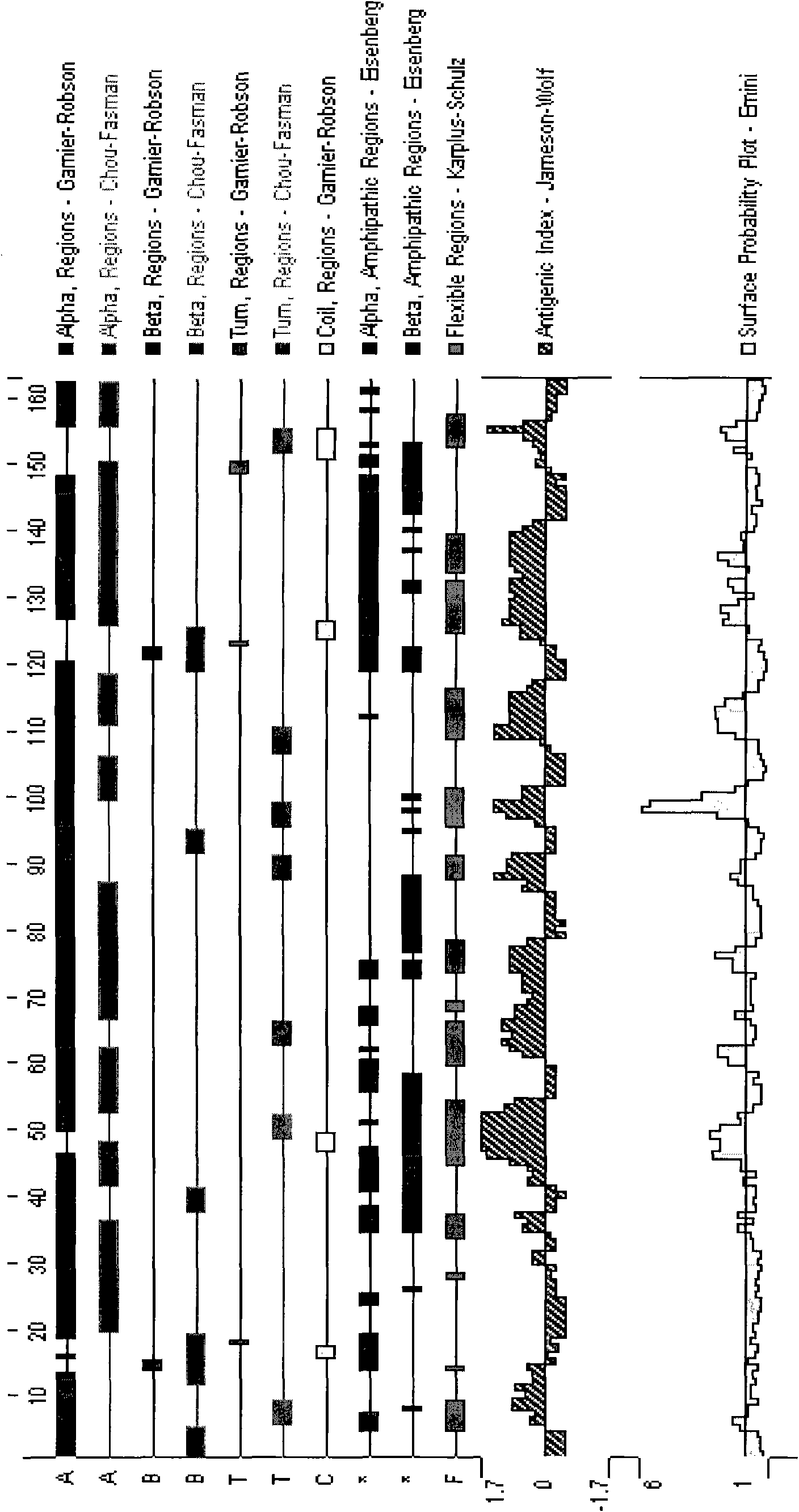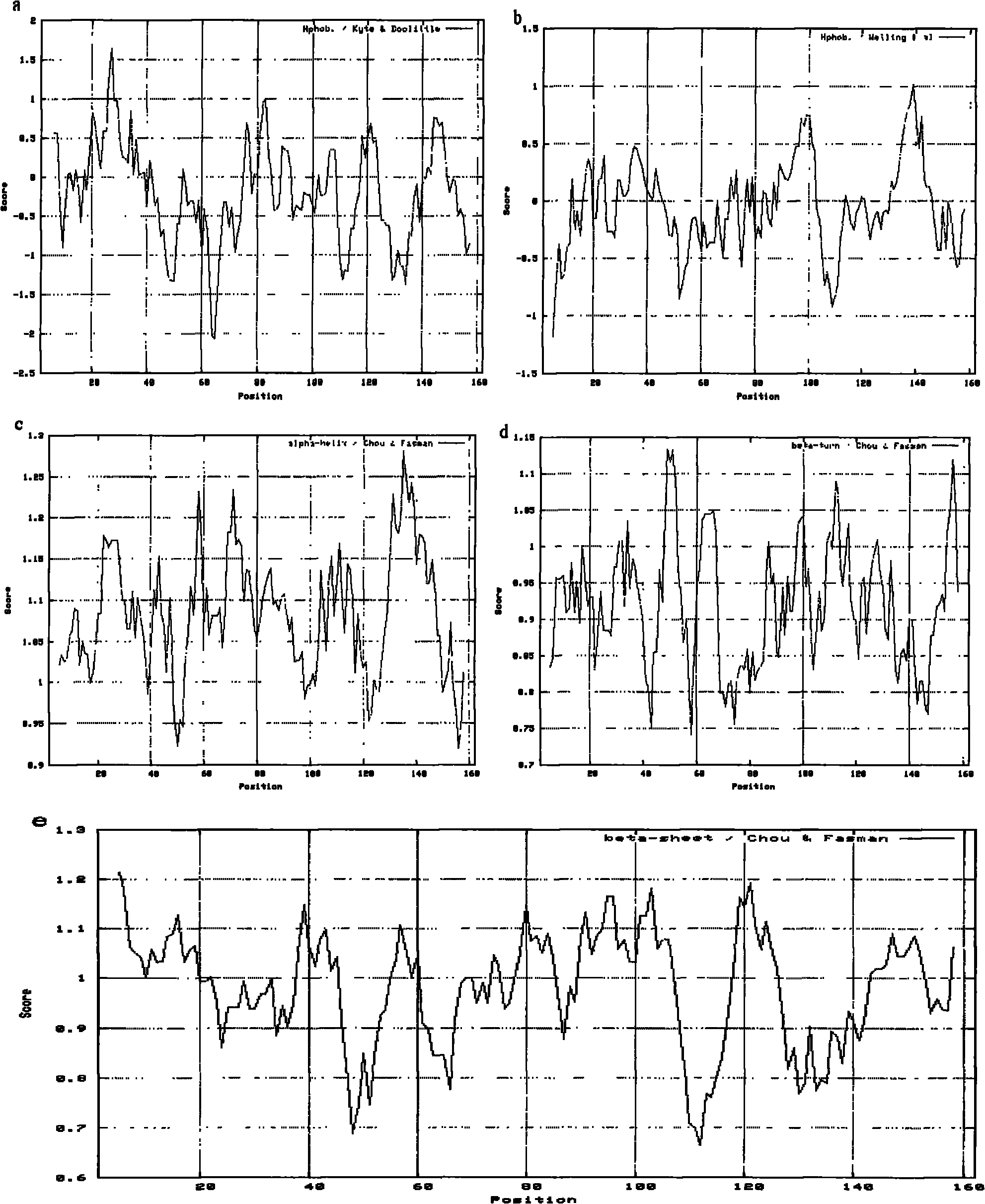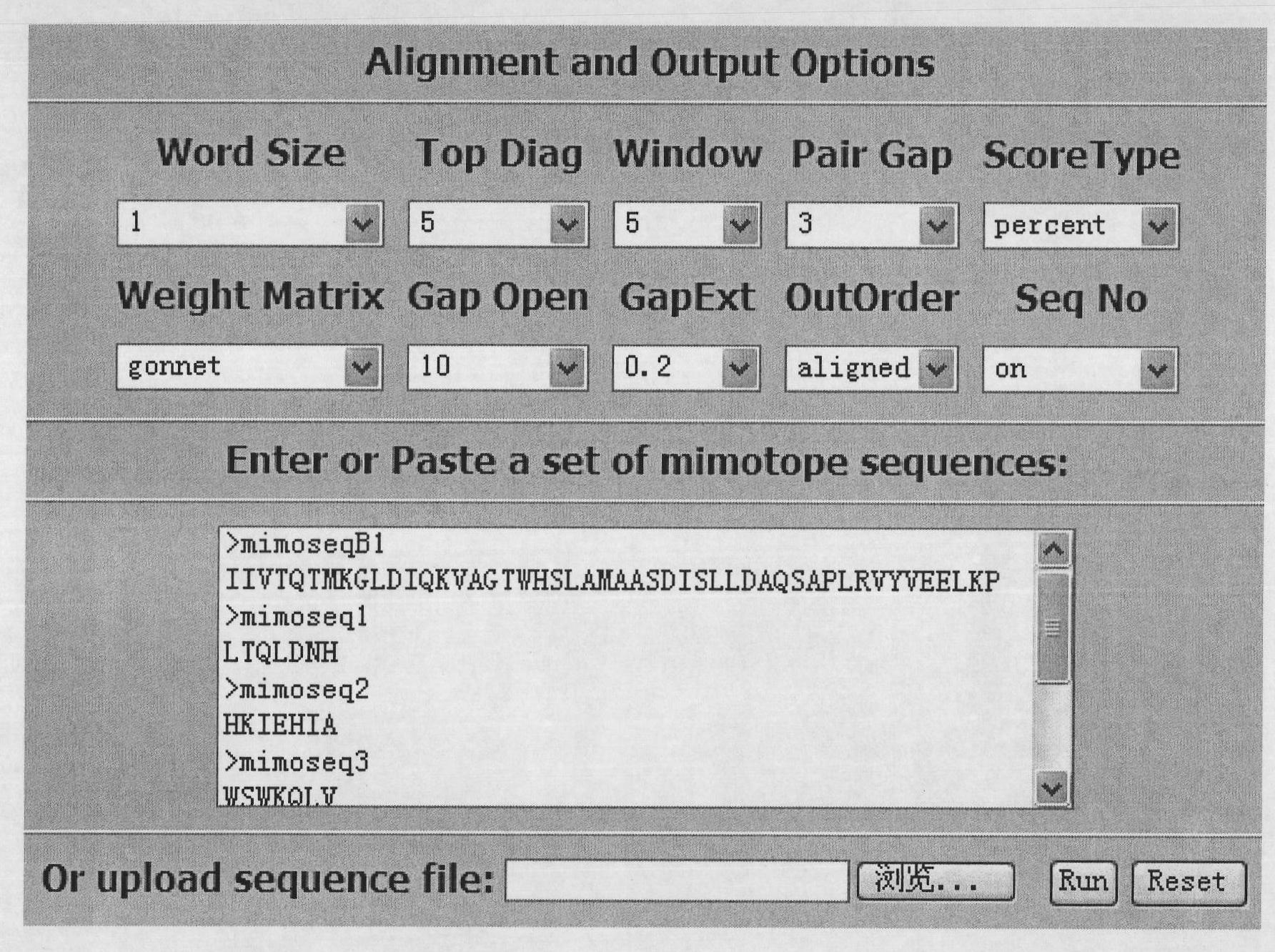Method for determining key amino acid of milk allergen epitope
A milk allergy and amino acid technology, applied in the biological field, can solve problems such as inability to determine key amino acids
- Summary
- Abstract
- Description
- Claims
- Application Information
AI Technical Summary
Problems solved by technology
Method used
Image
Examples
Embodiment Construction
[0023] The invention will be further illustrated by the following examples.
[0024] Example.
[0025] Materials selected in this embodiment: buffalo milk β-lactoglobulin with a purity of over 90%, and corresponding polyclonal antibodies with a titer of over 1:400,000.
[0026] The preparation of used buffalo milk β-lactoglobulin is the following steps:
[0027] Use DEAE-Sepharose Fast Flow anion exchange (1.2cm×30cm) for separation, first use pH6.8, 0.02mol / L phosphate starting buffer to balance the ion exchange column; take appropriate dilution of whey after ultrafiltration, and load the sample ; pH 6.8, 0.02mol / L phosphate equilibrium buffer to elute unadsorbed protein, about 200mL; phosphate buffer containing 0-0.5mol / L NaCl to continuously elute adsorbed protein, the elution rate is 1.5 mL / min; collect the target elution peak, and use the cut-off molecular weight 5kDa Amicon Ultra-15 ultrafiltration centrifuge tube to concentrate by ultrafiltration to 1 / 50 volume. cm×7...
PUM
 Login to View More
Login to View More Abstract
Description
Claims
Application Information
 Login to View More
Login to View More - R&D
- Intellectual Property
- Life Sciences
- Materials
- Tech Scout
- Unparalleled Data Quality
- Higher Quality Content
- 60% Fewer Hallucinations
Browse by: Latest US Patents, China's latest patents, Technical Efficacy Thesaurus, Application Domain, Technology Topic, Popular Technical Reports.
© 2025 PatSnap. All rights reserved.Legal|Privacy policy|Modern Slavery Act Transparency Statement|Sitemap|About US| Contact US: help@patsnap.com



